The NSW Productivity Commission reported in February that high housing costs are driving young families out of Sydney, causing a “brain drain” among 30-40 year olds:
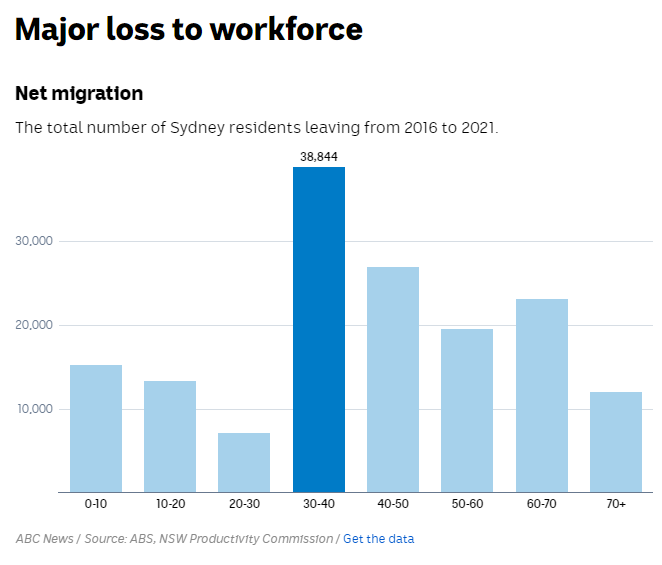
The NSW Productivity Commission found that Sydney lost around 35,000 residents aged 30 to 40 between 2016 and 2021.
The NSW Productivity Commission blamed a “lack of supply” and restrictive zoning as the main drivers of Sydney’s housing crisis.
“Sydney is at risk of becoming “the city with no grandchildren”, the NSW Productivity Commission’s head, Peter Achterstraat warned.
“If we don’t act, we could become a city with no grandchildren”.
“About a quarter of residential-zoned land within 10 kilometres of the CBD is subject to heritage protection restricting redevelopment”, the report claimed.
Hilariously, a new report shows that in the mad rush to plaster Sydney with high-rise apartments, the city has been left with a dearth of family friendly homes:
A chronic shortage of family-friendly apartments in Sydney is fuelling calls for the Minns government to mandate quotas for three-bedroom housing in the suburbs targeted for medium and high-density unit blocks.
Domain sales data shows fewer than one in 10 units recently sold in the Inner West and Canterbury-Bankstown, two of the Transport Oriented Development (TOD) program’s target areas in Sydney, had more than two bedrooms.
Philip Oldfield, the head of the University of NSW’s school of built environment, said Sydney’s planned housing largely ignored the needs of families, who make up 25 per cent of apartment dwellers.
“This mismatch needs to be tackled, or we face limiting opportunities for families with children in many of our neighbourhoods,” he said, expressing concern families were being forced to move away from transport hubs, increasing lengthy commuting and congestion…
Domain data shows available three-bedroom units are scarce in some of these areas. In Inner West Council, only 6.1% of units sold between April 2023 and March 2024 had three bedrooms. The figure was 8.9% in Canterbury-Bankstown.
Meanwhile, the actual cause of Sydney’s housing crisis and the exodus of families continues unabated.
The Australian Bureau of Statistics (ABS) population data for the 2022-23 financial year revealed that 38,425 residents left Sydney over the year:
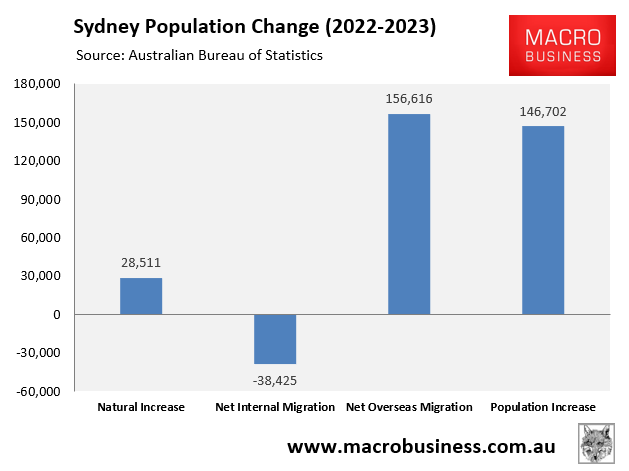
However, the loss of 38,425 incumbent residents was dwarfed by the record 156,616 net overseas migrant arrivals, in addition to natural increase of 28,511.
The extreme immigration that Sydney has seen this century has contributed to the exodus of residents interstate.
Since 2001, Sydney’s population has increased by 1.35 million people, nearly entirely due to net overseas migration:
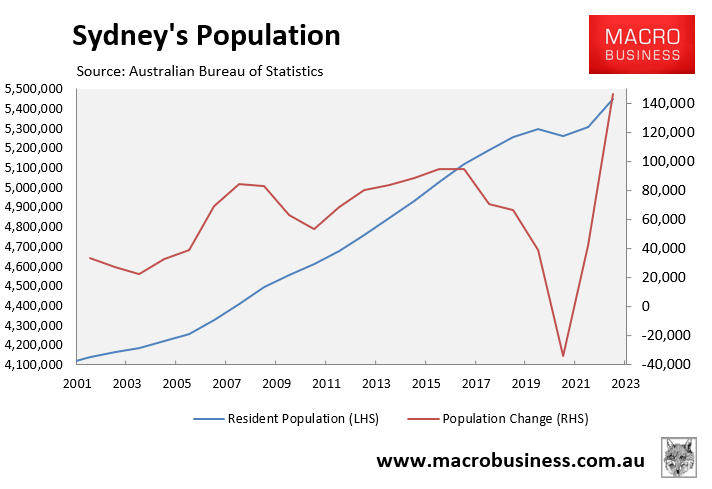
This population boom has coincided with Sydney residents being shoe-horned into high-rise apartments rather than houses:
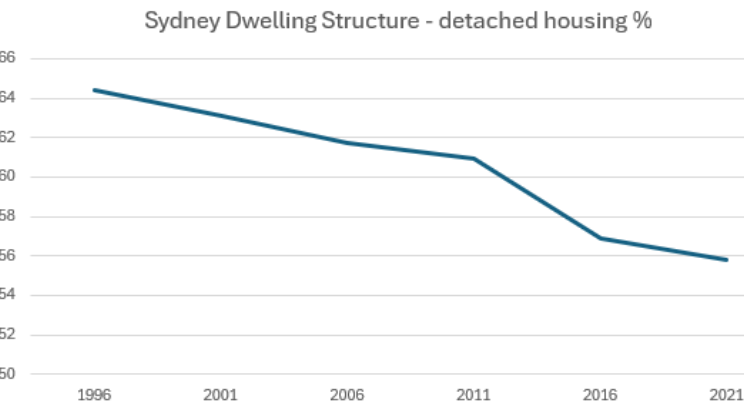
Source: Ben Phillips (ANU)
This metamorphosis into a high-rise city is expected to continue as Sydney’s population increases to nearly nine million people by 2060:
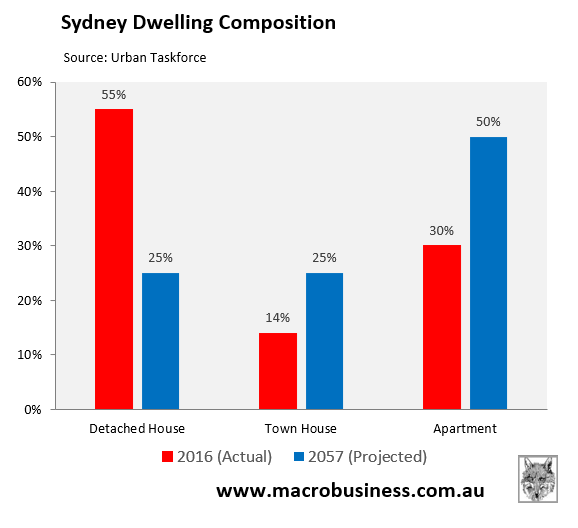
So, basically, young Sydney people are confronting growing housing costs while living in smaller residences, mostly two-bedroom high-rise apartments.
No wonder young families are departing in droves.
As long as Sydney’s population continues to grow rapidly through mass immigration, the city’s shortage of family friendly homes will intensify alongside rising prices and rents.
This will drive more young, incumbent families out of Sydney.
Meanwhile, politicians and policymakers will continue to blame the problem on a ‘lack of supply’ while they continue to import migrants in large numbers into Sydney (and Australia).

